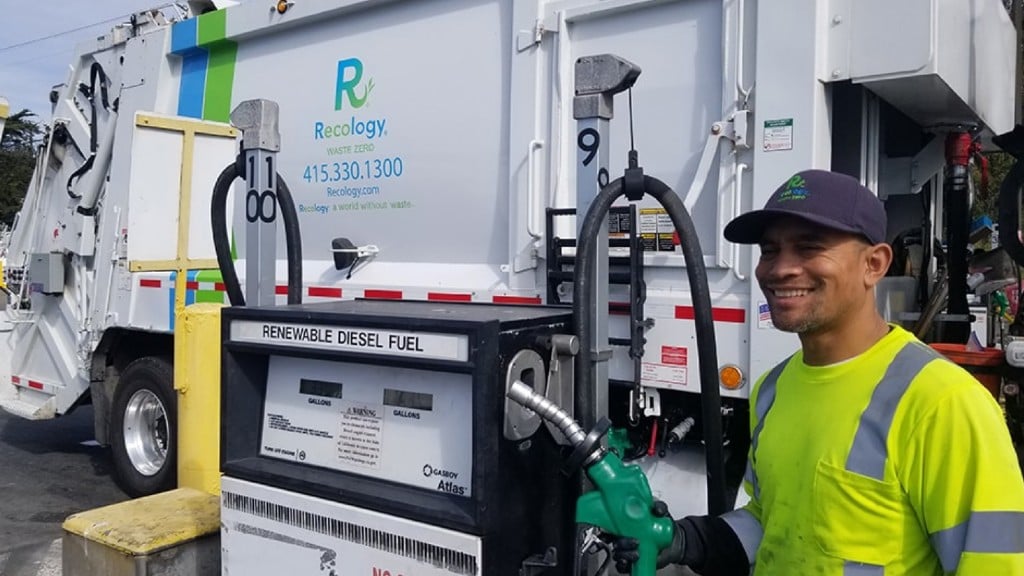
Recology has achieved its goal of powering its fleet with more than 90 percent renewable or alternative energy in 2022.
"We made a commitment in 2019 to significantly reduce our use of conventional fossil fuels. In hitting this mark, we achieved one of the most ambitious fleet goals in our industry," says Recology CEO Sal Coniglio. "At the time, renewable fuels were unavailable in many areas where we provide service, including the Pacific Northwest, so we knew it would be tough. Through concerted efforts, we achieved the goal, and in doing so, we helped broaden the availability of cleaner fuels on the West Coast."
Most Recology collection and transfer trucks now operate on renewable diesel or renewable natural gas (RNG). Both fuels are lower-carbon replacements for conventional diesel and conventional natural gas.
Utilizing cleaner fuels
Recology also operates electric vehicles, including what Recology says is the first electric Class 8 rear-load collection trucks deployed in the United States. By shifting to cleaner fuels, optimizing collection routes, and introducing electric trucks, Recology reduced fleet emissions by 44 percent in three years (2019 to 2022).
Recology's transition away from conventional fossil fuels began in the early 1990s when the company started using compressed natural gas (CNG) and liquified natural gas (LNG) in its fleet.
"Demanding and utilizing cleaner fuels is just one of the ways Recology is demonstrating our commitment to reducing our carbon footprint and helping our cities achieve their climate goals," says Coniglio. "We are the industry leader in resource recovery systems, including recycling and curbside composting collection programs."
While Recology continues switching more trucks to renewable and alternative fuels, the company also continues testing zero-emission trucks and working closely with vehicle manufacturers to further enhance fleet sustainability.
"We are proud of this milestone achievement and now want to go further. New legislation is driving industries towards zero-emissions vehicles, and we intend to be one of the first to eliminate internal combustion engines from our fleet. Big impacts require big changes, and we look forward to rising to the challenge," says Coniglio.


